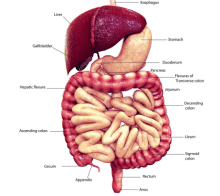Get the Facts About Inflammatory Bowel Disease (IBD)

As individuals age, the risk of developing digestive issues increases, and Inflammatory Bowel Disease (IBD) is among the most significant of these conditions. IBD is a term that includes disorders like Crohn's disease and ulcerative colitis, characterized by chronic inflammation of the gastrointestinal (GI) tract. Although IBD can manifest at any age, it is often diagnosed in younger adults and can persist throughout life.
Talking about IBD may be difficult due to the personal nature of its symptoms. However, it's important to address the condition, as it can lead to serious health issues and may influence life expectancy.
What is Inflammatory Bowel Disease (IBD)?
 Inflammatory Bowel Disease (IBD) is an umbrella term used to describe disorders that involve chronic inflammation of the digestive tract. As of 2014, it affected approximately 1.6 million Americans, but continues to grow as more people are diagnosed each year. The two primary types of IBD are ulcerative colitis and Crohn's disease, each with distinct characteristics and treatment approaches.
Inflammatory Bowel Disease (IBD) is an umbrella term used to describe disorders that involve chronic inflammation of the digestive tract. As of 2014, it affected approximately 1.6 million Americans, but continues to grow as more people are diagnosed each year. The two primary types of IBD are ulcerative colitis and Crohn's disease, each with distinct characteristics and treatment approaches.
Ulcerative Colitis (UC):
Ulcerative colitis is confined to the large intestine (colon) and the rectum. It typically presents with inflammation and ulcers along the lining of the colon, leading to symptoms such as abdominal pain, urgent bowel movements, and bloody diarrhea. The inflammation in UC starts in the rectum and may extend continuously to involve the entire colon. Unlike Crohn's disease, ulcerative colitis only affects the innermost lining of the colon and does not penetrate into deeper layers. This condition can be debilitating and can sometimes lead to life-threatening complications. While its exact cause is unknown, UC is thought to result from an abnormal response by the body's immune system to the normal bacteria in the digestive tract.
Crohn's Disease:
Crohn's disease can affect any part of the gastrointestinal tract, from the mouth to the anus, but it most commonly affects the terminal ileum, where the small and large intestines meet. It is characterized by patchy areas of inflammation that can penetrate through multiple layers of the intestinal walls, not just the lining. This can lead to complications such as strictures, fistulas, and abscesses. Symptoms often include abdominal pain, severe diarrhea, fatigue, weight loss, and malnutrition. The inflammation caused by Crohn's disease can be both intermittent and spread throughout the GI tract, making it more challenging to manage than ulcerative colitis.
Both conditions are thought to be the result of a complex interplay between genetic and environmental factors that lead to an inappropriate immune response. Though they share some symptoms and are both chronic, their treatment may differ due to the nature and location of the inflammation. There is currently no cure for either condition, but with proper medical care, many patients can achieve and maintain remission and enjoy a good quality of life.
What are the Causes and Symptoms of IBD?
The exact causes of IBD are unknown, but it's believed to involve an inappropriate immune response that causes inflammation in the intestines. Symptoms vary but typically include:
- Frequent and urgent bowel movements
- Persistent diarrhea
- Abdominal pain
- Blood in the stool
- Weight loss and anemia

How is Inflammatory Bowel Disease Diagnosed?
Individuals may seek medical advice for IBD symptoms, or a healthcare provider may suspect IBD during a routine examination. Referral to a gastroenterologist is common, and they may conduct several tests, such as:
- Blood Tests - To check for anemia or infection, both of which can be associated with IBD.
- Stool Tests - To look for evidence of inflammation and rule out infections that can cause similar symptoms.
- Colonoscopy - Allows direct visualization of the colon and the end of the small intestine, with the ability to take biopsies to confirm the diagnosis.
- Imaging Studies - Such as CT scans or MRI, to visualize the extent of inflammation in the intestines.
- Endoscopy - For Crohn's disease, an upper endoscopy might also be performed to examine the esophagus, stomach, and duodenum.







 Bowel Calm™'s formulation of effective ingredients and strong name recognition have brought praise from both customers and health professionals alike. To learn more about the research and data behind Bowel Calm™ , please visit our "
Bowel Calm™'s formulation of effective ingredients and strong name recognition have brought praise from both customers and health professionals alike. To learn more about the research and data behind Bowel Calm™ , please visit our "




